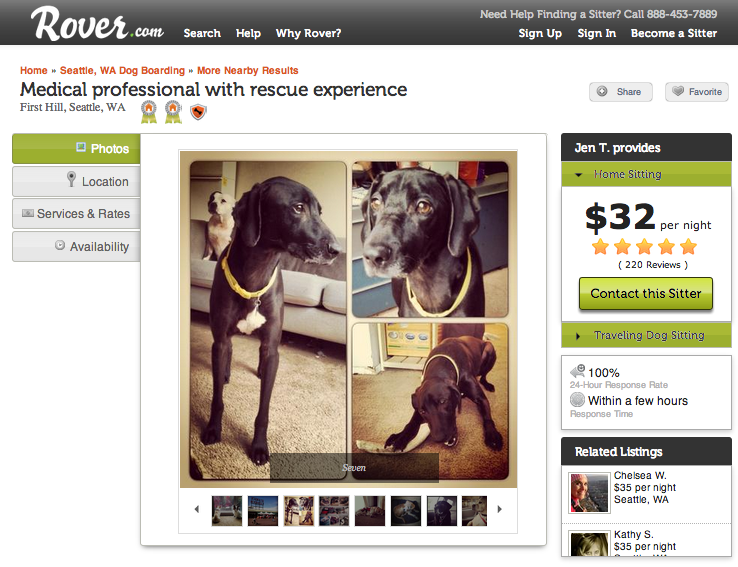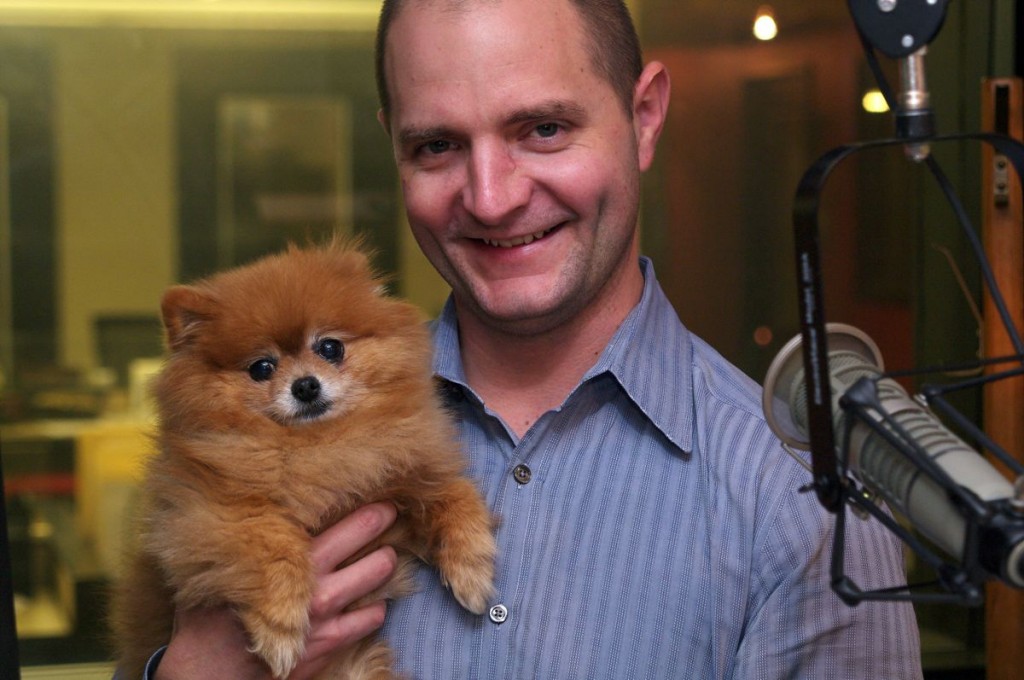The barking in the background at times makes it difficult to hear Jennifer Tserng describe the last few years of her life, but it’s understandable given the requirements of her new full-time job.
Tserng is now a Rover.com dog-sitter, taking care of four-legged friends in Seattle on a daily basis. It’s quite the change from her last gig, and not exactly where the 36-year-old expected to be after earning her MD from the Medical College of Ohio nearly a decade ago.
Yep, that’s right: Tserng is a doctor-turned-dog sitter. It’s a career change that Tserng has embraced — after all, she’s happier everyday and making more money in the process.
Tserng moved to Seattle nearly two years ago for a medical examiner position with King County. Last holiday season, she was looking for ways to make a few extra bucks when she stumbled upon Rover, the Seattle-based startup that recently raised $3.5 million from Petco.

Tserng, who has been involved with dog rescue and owns three dogs herself, first tried Rover as a client.
“I kind of felt like I couldn’t really find a sitter that I liked or was available consistently,” she told us.
So, Tserng decided to become a sitter with a friend and continued to do so until her contract with the county ended this past June.
At that point, Tserng had a decision to make.
“It was either move somewhere else in the country and find another day job, or just stay here and pet sit,” she said.
She opted for the latter and it’s turned out to be a good decision thus far. Tserng sees about 3-to-5 dogs per day and makes more money than she did as a medical examiner.
Tserng, who charges about $32 per night, said she really enjoys her new job. It’s been a nice change of pace from the 9-to-5 world and if the past few months are any indication, she and her friend are on pace to make $100,000 per year, which also includes money from dogwalking and daycare in addition to her Rover.com boarding income.
Tserng, who made $40,000 in a training position at her last job as a medical examiner, plans to continue pet sitting for the time being.
“I’m definitely more motivated because I’m running the show,” she said. “I like the flexibility a lot more.”
The entrepreneurship-aspect of Rover is what attracts many sitters to the platform.
“That’s one of the best things,” Rover.com CEO Aaron Easterly told us. “We love that we are able to provide people with the opportunity to become their own boss and ultimately start their own business.”

It’s really a pattern we’ve seen among companies like Rover that allow families to add incremental income with skills or products they already own. Room rental companies like Airbnb or ride-sharing startups like Lyft and Sidecar are good examples.
Much like Rover, companies like Lyft allow people to use products and skills they already have to run their own mini-businesses. (Photo via the Lyft blog)
Like Tserng, many are simply quitting their full-time jobs altogether in favor of these new ways to make a living. While going from a full-time MD to a full-time Rover sitter is uncommon, Easterly said there are several former medical professionals making a “significant amount of money,” as Rover sitters. It’s reminiscent of the entrepreneurs in the 90s who jumped on the eBay train and made a good amount of money as third-party sellers.
Rover currently employs 30 and now has more than 25,000 sitters across the U.S. The company was started by venture capitalist Greg Gottesman at a Startup Weekend event in Seattle in 2011 and investors in the startup include Petco, Madrona Venture Group and Crunchfund.
This article originally appeared in Geekwire.
BY TAYLOR SOPER on November 11, 2013 at 12:28 pm


